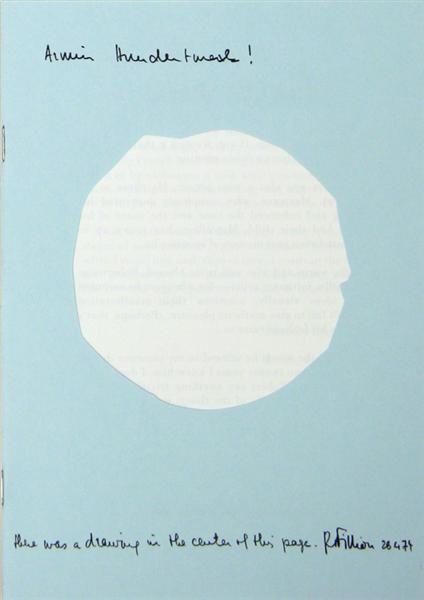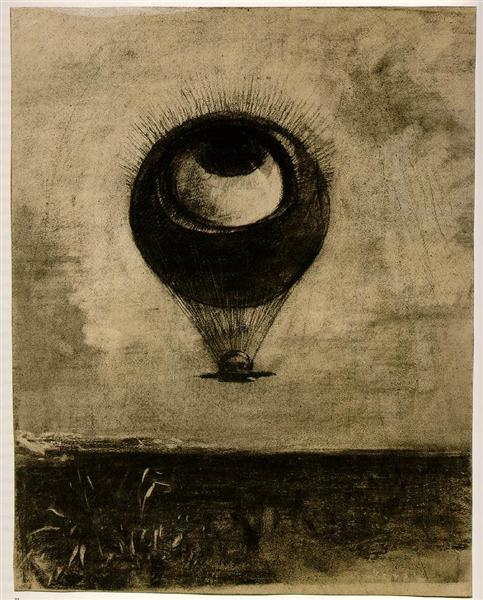Something happens when we are alone; or rather, something which seems like it should change, doesn’t. It may seem banal, but in this conversation lies so much regarding our psychology. The banality is this: what happens when there is no one watching us, is that we do not regress into brutish behavior. We are still civil and consider our social relationships, even without any risk of real consequences. With the social rules programmed into us, the ‘unreal’ consequences of acting unsocially even when no one is watching is a guilt that feels every bit as real as it would have if people saw what you had done.
Much of our behavior patterns are formed in the presence of others observing us and with us trying to perform in ways that benefit the type of relationship you have with those others. But when there is no one watching, who are we performing for? Is that when you being true to yourself? Or can you still be placating some person in your life?
The Observable Ends Matter to the Self
To understand our social selves, we must start with what seems apparently true about our social actions and their observability. Our actions, when performed in front of others, are partly adjusted to meet the needs of the others and to preserve the relationship with them (as well as expressing our basic needs). This is done, not by a fully committed action, but from a display of the action. One can display kindness to another but harbor great hatred for that person simultaneously. For that person there is a desire to maintain a relationship, which is done through the outward actions, but the outward actions are not committed to like something which is borne out of real need.
It is the observable parts of us that we are concerned with here. It is the objectivity of actions that matter when others can see you. Someone without a fully developed self-consciousness might only act to preserve self-image if people are watching, and this person might actually commit unsociable actions while there is no immediately present relationship he or she seeks to preserve or form. This person shifts personality readily and would be easily recognized as two-faced. But most of us, can predict far enough into the future to know that even when alone, others will eventually see the objective consequences of your actions.
So, when people are not observing, it is the consequences of those actions that begin to matter. You might exercise self-control while preparing for a speech where you have strong motivations to impress your audience. The display in the speech will be, for others, the evidence of your thinking and practicing while you were unwatched. Whatever way you practice, does not seem to matter as long as the outcome is the same.

However, we cannot know for sure what will be observed and what won’t. It is a thin and blurry line to cross, between what people can see of you and what they cannot. Something may not seem like it will be observable but is; and there are things which may seem noticeable but are not. We all know what it is like to not want attention but receive it. And we know what it is like to want attention for a good deed which is ignored. Because of the blurry line we naturally settle on the side of cautious self-consciousness We feel potentially observed about parts of us and our actions which may never be discovered by others.
The cautious mechanism for hiding ourselves even without people around is often simply called our “conscience.” Our conscience is what makes us feel guilt for a crime we committed, even without being caught, and furthermore turning ourselves in. Or when we find a wallet with cash, we return it to its owner. Much of the kindest deeds that are done, are done by the internalizing of the goodness of kindness. And not by the fear of actual social repercussions.
Thinking and Internalizing
One so-called action that stays on this blurry line between the observable and the private is thinking. Much of our thoughts seem safely private, but we have several thoughts, like a lust for a coworker or a hatred of a spouse, which we fear that other people might discover we have. We fear our proneness to the Freudian slips which might give away our guilt-ridden thoughts. We dread the possibility of showing outward signs of secret thoughts when fantasizing a cathartic scenario.

For this reason, we operate, in both thought and action, with a low-level feeling of the potential that someone observing us. So we grow to act morally without being directly concerned with social consequences. Instead, many of the consequences are perceived in the conscience, or an internalized moral code. We carry a bit of our social selves with us everywhere we go. Even where we are so fundamentally alone, stuck seeing through only our eyes, we imagine the opinions of others and of society. This is a large part of the Freudian Ego.
An apt illustration of this phenomenon might come from speculating on the extreme versions of this potential observer of thoughts. The commands of auditory hallucinations seem strangely like the conscience which suggests an observer for all actions and thoughts making one paranoid that everything will be revealed. This hallucinated speaker might represent a tragically strained relationship which has taken nearly full control of a person’s actions. Here, the conscience becomes ever more real, beyond the merely psychological, and thrusts itself into the perceivable world.
There are also those who seem to be on the opposite end of the spectrum. These are the people who do not seem to give much credence to their thoughts. They do not question their consequences in the real world, and they feel justified in their thoughts because their authority has been confirmed by their small social group. For this reason, this person’s thoughts do not arise in consciousness, because they are not concerned about monitoring them. Most of their thoughts are perfect reflections of the social order and need not be questioned (in terms of psychological motivations).
In both of these cases, the subject cannot think of him or herself.
Awareness of Social Thoughts
The question now becomes how we know what thoughts come from a social cause and what thoughts are truly original and personal. It seems as if all our potentially observable actions (including thoughts) can and are partly influenced by the culture and by social needs. If our conscience is derived from social needs, what is left for us to listen to that might be the springs of individuality?
To rephrase the function of the conscience, we have some source of individual, subjective thoughts, and what comes to consciousness is often only the judgements we make on those thoughts. Those judgements reflect social opinions. Since we are usually aware of the judgements, the goal now is to find out what we are judging.

This is what makes psychoanalysis such a useful therapeutic method. It gets the person to talk and reveal the judgements, and by seeing these judgements, the analyst can bring up how they function to preserve relationships and hide thoughts. We find out what failing relationship is causing self-hatred, for instance, by seeing how one judges one’s own thoughts and behaviors. What thoughts are censored? What self-defeating obsessions do we have? What relationships do they seek to preserve? And perhaps just as important, what expectations do we have of our relationships that continually frustrate us and cause us to constantly monitor ourselves?
Exercising the True Conscience: Writing and Burning a Letter
For us to observe ourselves, truly, and without hastily labelling, is to express our perceptions of the world as a subject, in a spontaneous way. Although the subjective will be altered by converting it into language, we cannot hope to learn our thoughts without allowing them to reach consciousness through the tool of language. What is gained from this spontaneous expression of thoughts in language is the becoming aware of what the reoccurring thoughts are. Those are the highly salient desires which tell us more about ourselves than whatever the thought’s content says about the world.

We cannot hope to do this without turning the subjective into through the symbols of language and the analogues of image-creation, we cannot see them for ourselves. A rather simple way of exercising this Self-expression is by forcing oneself to write a journaling. Like the psychoanalytic tool of free association, forcing oneself to write any thoughts as they come can help us see consciously what we do not normally become aware of. Habitual thoughts tend to sneak by because they offer nothing new, but still alter behaviors.
An important quality of this practice is to continue writing, even when stuck. To force out thoughts makes you more likely to see obsessions or force the ego to make a mistake. We might accidentally say or write a thought which had remained hidden to us for so long. Recording dreams has a similar effect in finding how one censors oneself.
This technique also functions better when you can spill out thoughts on paper without concern of others reading it—not even yourself. In fact, you can burn the paper just after. The fact that there is no risk of this objective thing being observed is important because the expressing itself is the therapy.
It is like a letter from the true self, to the conscious self, and even if it is not read, it will have done its job. That is why psychoanalyst Jacques Lacan says, “a letter always arrives at its destination.” Simply by the expression in words (perhaps in writing a highly revealing letter to someone) one has done the psychological work required by the deeper self, whether the letter is physically delivered or not. This also suggests that writing deeply expressive letters to someone without the intention of delivering them might also show us the state of our relationship is.



